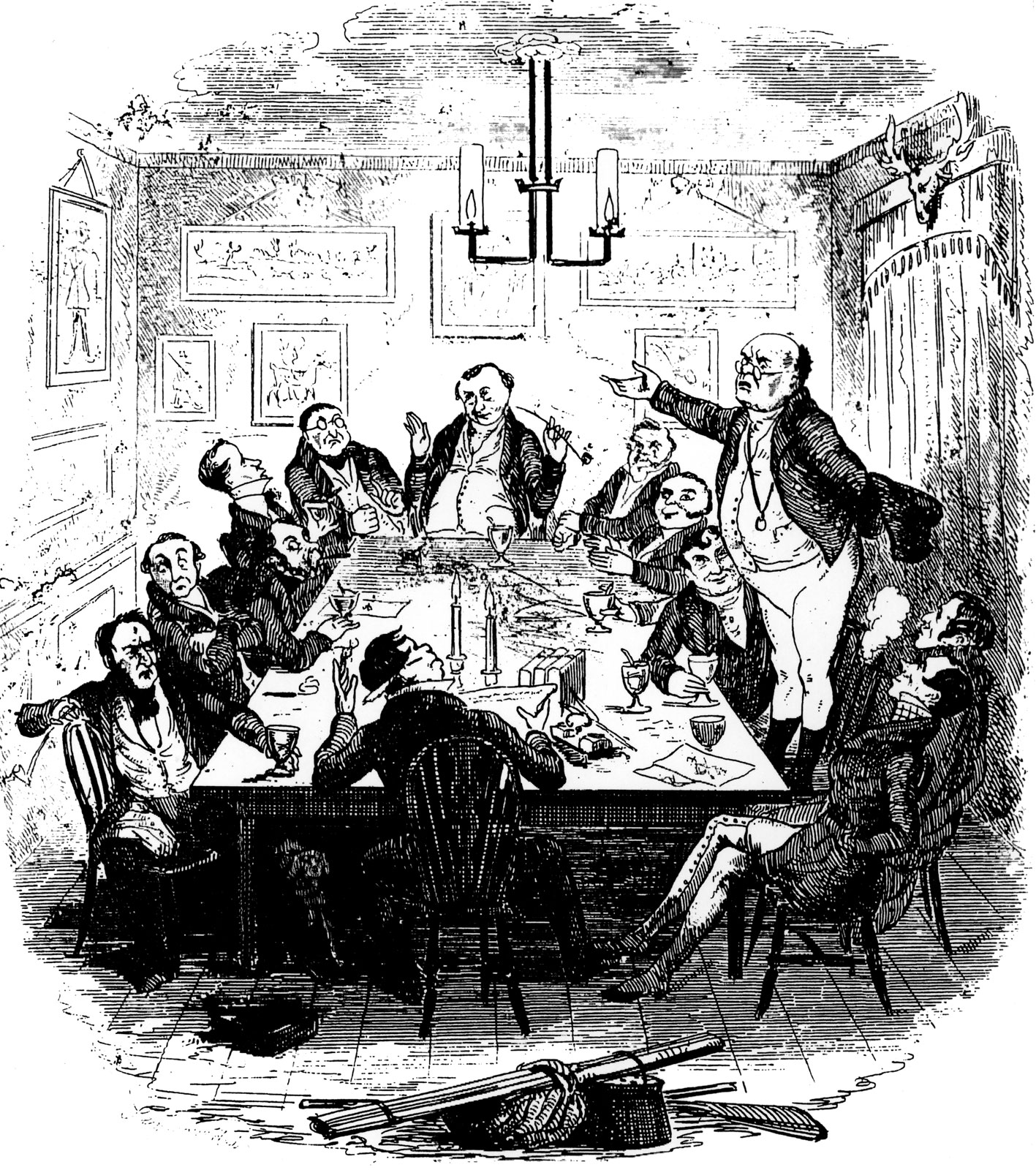Happy Birthday, Boz! Dickens Turns 200
Brad Fruhauff
 EIC Brad Fruhauff reminisces on his relationship to the great Victorian novelist.
EIC Brad Fruhauff reminisces on his relationship to the great Victorian novelist.
On midnight, February 7th, 200 years ago, Charles John Huffam was born to John and Elizabeth Dickens. He would grow up to become the most famous and best-selling novelist of his day and arguably one of the finest talents for character and wordplay since Shakespeare.
I tell my students that if they don't like Dickens there's something wrong with their souls. I'm only half kidding. How, after all, can you not love a man who had such great love for his characters and for his native tongue? One of my favorite examples of his skill at mixing evocative description with the absurd comes from the opening paragraph of Bleak House:
London. Michaelmas term lately over, and the Lord Chancellor sitting in Lincoln's Inn Hall. Implacable November weather. As much mud in the streets as if the waters had but newly retired from the face of the earth, and it would not be wonderful to meet a Megalosaurus, forty feet long or so, waddling like an elephantine lizard up Holborn Hill. Smoke lowering down from chimney-pots, making a soft black drizzle, with flakes of soot in it as big as full-grown snowflakes--gone into mourning, one might imagine, for the death of the sun. Dogs, undistinguishable in mire. Horses, scarcely better; splashed to their very blinkers. Foot passengers, jostling one another's umbrellas in a general infection of ill temper, and losing their foot-hold at street-corners, where tens of thousands of other foot passengers have been slipping and sliding since the day broke (if this day ever broke), adding new deposits to the crust upon crust of mud, sticking at those points tenaciously to the pavement, and accumulating at compound interest.
That Megalosaurus is simply unimaginable in a Thackeray or Trollope or even Joyce (in whom much is imaginable).
In high school, I read an abridged version of Great Expectations and hated it. I knew what a novel was like and this wasn't it. The writing was verbose, the characters exaggerated, and the angst was completely inaccessible. Later, I discovered a small cadre of friends who similarly disliked it, and it became a point of pride among us that we had "found out" the great Dickens to be an over-rated windbag.
It took eight years for me to give Dickens another chance, and that after I had read through most of the rest of the century's authors: Austen, the Brontës, Eliot, Thackeray, Hardy. I began with Hard Times, which is probably now my least favorite, but at the time it was a revelation: Dickens wasn't trying to write a novel like any of those other folks. He was reimagining what the novel was, and what it was was a playground for his infinitely flexible imagination.

Dickens gives us a world of characters who are alive because they are larger than life, and if they are not always fully aware of themselves (few, if any, are at all), they are no less lovable for being caught up in the same egotism that affects us all. More than that, his portrayals teach us to love even the grotesque and bizarre, to appreciate the carnival of life in the midst of our strivings.
More still, and most significantly, I think, for the Christian, he insists on a world infused with moral purpose and even clarity. His villains are punished and his heroes rewarded with a self-consciously fairy-tale consistency. Social causes pervade his novels, but he never gets so bogged down in the brokenness of reality that he can't simultaneously remind us where grace and beauty shine through.
And he does it all in an ebullient prose that reminds us why we love novels in the first place: their ability to wrap us up in words and convince us that some parts of the chaos of our lives are intelligible, if only for a little while. Dickens's facility with the English language is a joy all its own, and it's why I tell my students they need to enjoy the ride.
He wasn't a perfect man, but what man is? We remember him not as a saint but as an artist who left us with a great gift.
If you haven't read any Dickens, you might start with Great Expectations (unabridged) or David Copperfield. Bleak House, Little Dorrit, and Our Mutual Friend all rank high among his "five or six masterpieces," but may be harder to get into until you get a feel for him.
Brad Fruhauff is Editor-in-Chief of Relief. He wrote his dissertation on ethics and genre in the work of Dickens and so has a personal investment in this bicentennial year's celebrations.